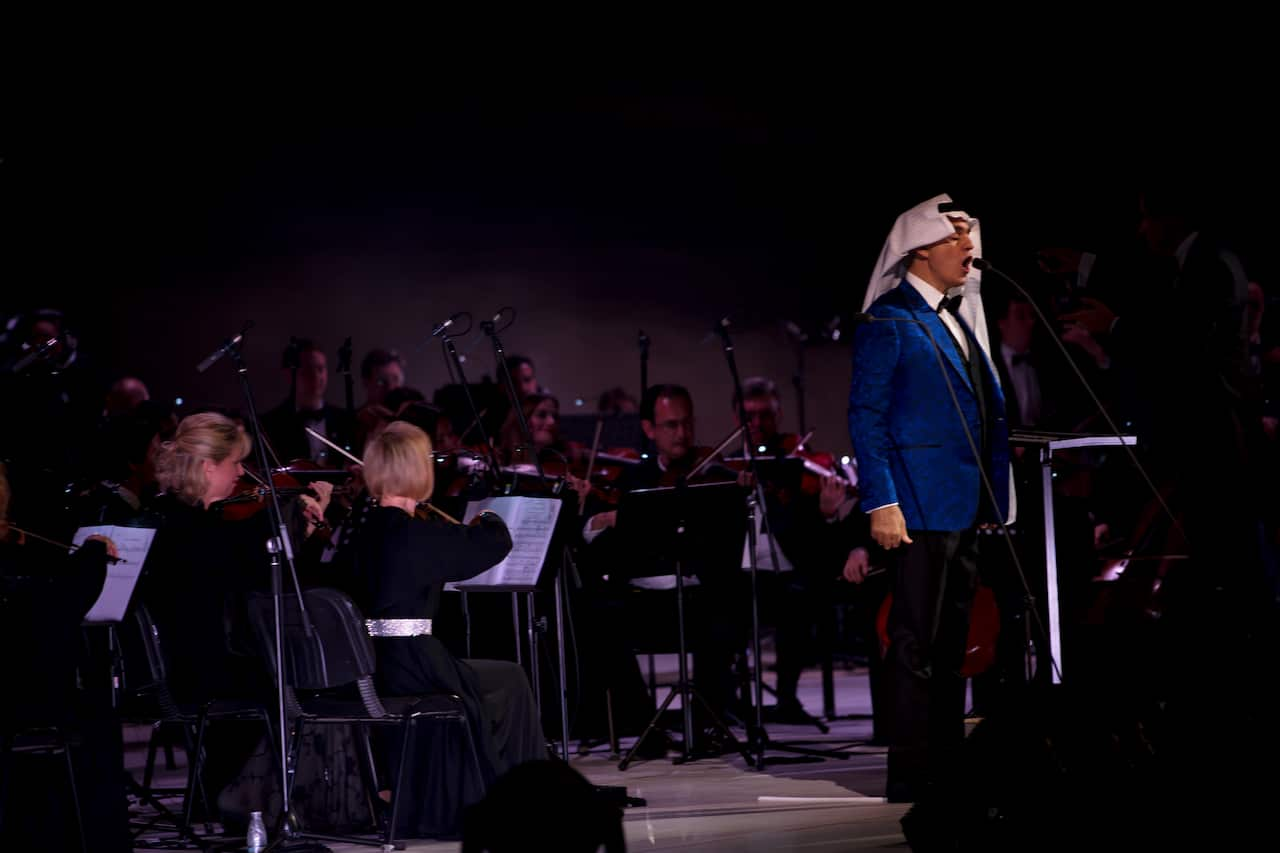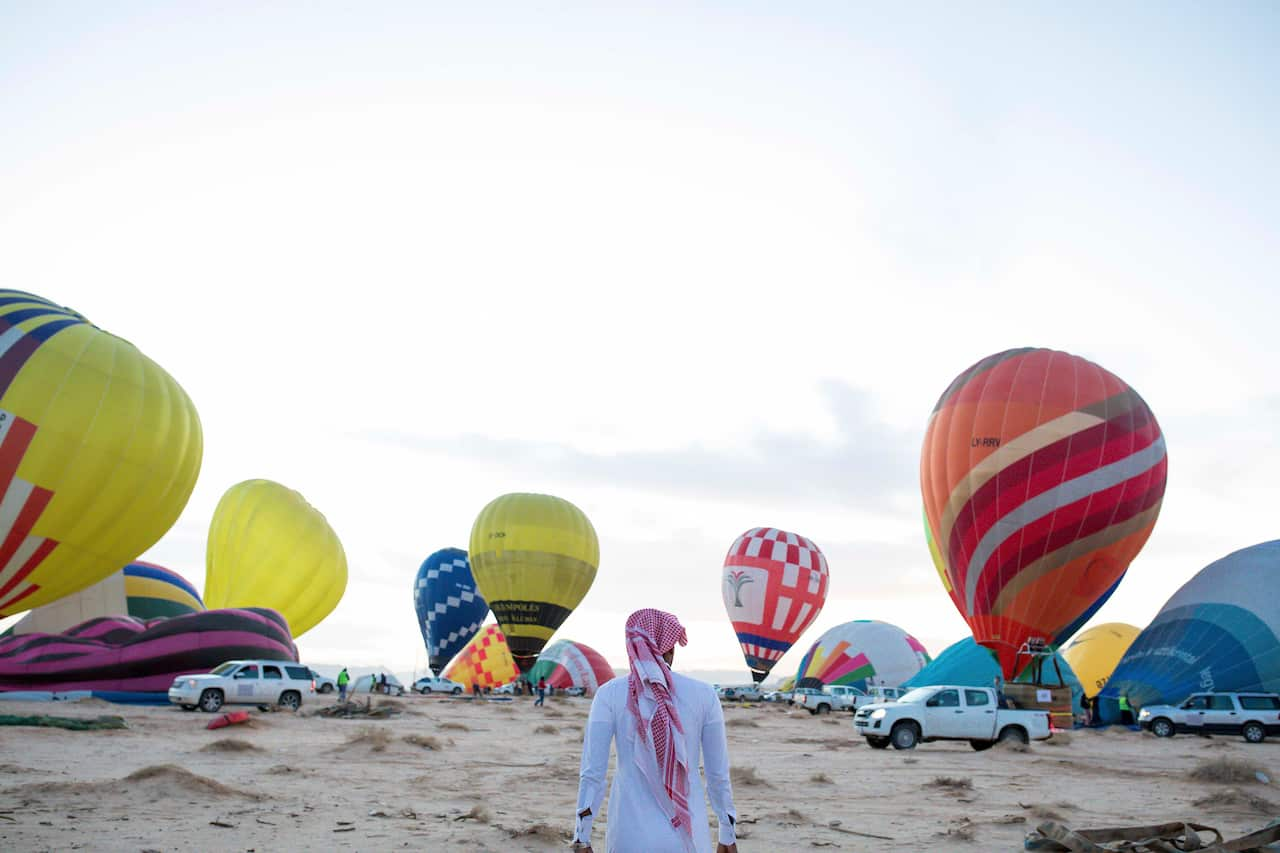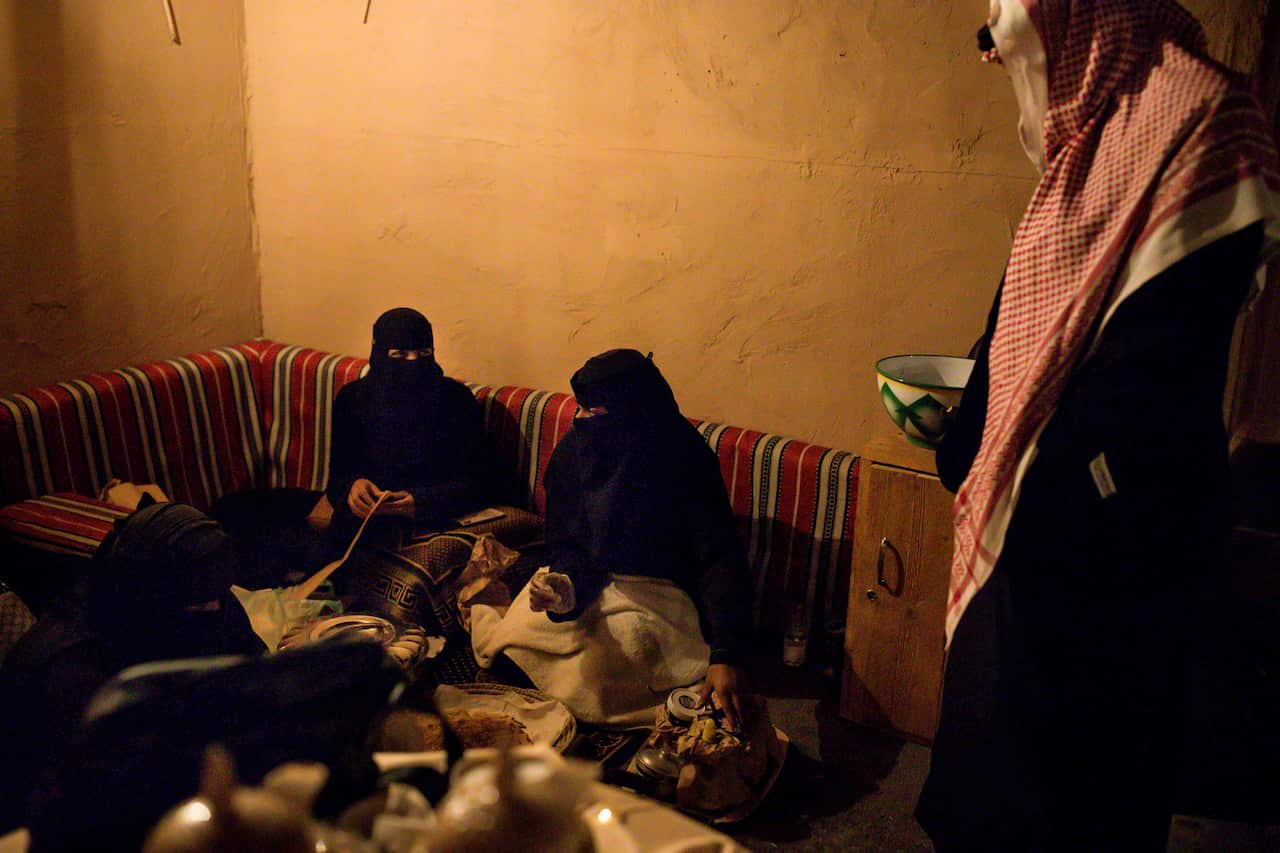What is life like as a woman in modern Saudi Arabia? Watch here.
Since Crown Prince Mohammed bin Salman rose to power in the Kingdom of Saudi Arabia in mid-2017, the young ruler has been quick to frame his plans for the future of the country.
The ban on women driving was lifted, citizens were allowed to visit the cinema and there has been a push to work closer with world leaders from the West.
Dr Ben Rich, a lecturer in international relations and Middle East politics at Curtin University, told Dateline, “I think the reality is even though you’re getting these symbolic gestures like the concerts and allowing the screening of movies, you still have extremely robust structures of conservatism that are backwards looking." Human rights groups tend to agree:
“Women are still essentially legally children in many ways. That hasn’t been addressed and it doesn’t seem the state is particularly interested in addressing that," says Dr. Rich.
“The state is claiming to be leaving this legacy behind. But internally you see it crashing down and reinforcing some of these structures it claims to be eroding.”
Against this backdrop, The New York Times visited the western desert region of the country to experience how it is trying to welcome tourists to regions that were previously locked away.
Read more as reported in The New York Times:

The new Italian-designed concert hall in the middle of the desert shimmered in the sunset light, its walls of mirror reflecting the golden sandstone hills and cliffs.
Inside, a symphony orchestra from China rehearsed a Western classical piece, preparing for a concert featuring Chinese pianist Lang Lang. The serene and lilting notes floated through the empty hall.
The concert was part of a series with performances by Andrea Bocelli, Yanni and Majida El Roumi taking place this winter in Saudi Arabia.
From the western desert, Saudi Arabia appears to be a different country than the one that has been under constant criticism from U.S. politicians and other international officials since October, when Crown Prince Mohammed bin Salman, the 33-year-old de facto ruler, was first accused of ordering the killing of Jamal Khashoggi, a Virginia resident and Washington Post columnist.
The CIA has since concluded that the crown prince was responsible for Khashoggi’s killing, and its strongest evidence includes intercepted conversations. The Saudi government denies he was involved.
Crown Prince Mohammed has also come under international criticism for imprisoning human rights activists and detaining hundreds of people in a hotel, as well as for waging a war in Yemen that has fuelled what the United Nations calls the world’s worst man-made humanitarian crisis.
But at the same time, officials under his rule are trying to build up Saudi Arabia’s tourism and culture industries by promoting events like the music festival. In past years, an event like this would not have taken place in a remote region of the conservative kingdom.

The strategy is in line with Crown Prince Mohammed’s efforts to loosen restrictions on entertainment and expressions of popular culture.
In developing a tourism industry, officials are focusing on the ancient caravan town of Al Ula in the Hejaz, a western region that has been a crossroads for traders between Mediterranean empires and ports along the Gulf of Aden.
“We call this the place of the future,” said Maher Mazan, a manager at Shaden Resort, a new hotel built among rock canyons outside town, where rooms typically go for $440 per night. “If you come back in one year, it’ll be different.”
The area’s rich history and archaeological sites have long captivated King Salman, the crown prince’s father. In 2017, the king established the Royal Commission for Al Ula, with the goal of preserving the striking rock archaeology, despite its pre-Islamic origins, and drawing more tourists. The commission also began looking at holding a concert series.
The centrepiece of the area is Mada’in Saleh, or Al Hijr, a collection of more than 100 towering tombs carved into hillsides that take on the glow of burnished gold at sunset.
This was the southern reach of the realm of the Nabateans, who carved Petra, the famous sandstone city in Jordan. The tombs date back two millenniums, and many Saudis believe them to be cursed, the abode of jinn.
Nearby is a preserved station of the defunct Hejaz Railway, an Ottoman-era line built by German and Turkish engineers. By 1908, it ran 800 miles from Damascus to Medina.
One afternoon, a guide led a group of foreign visitors by car first to the train station, then to the Nabatean tombs.
A guide, Mohammed al-Anzi, said the region had been dominated in ancient times by four different civilizations. Some people had migrated here from Greece, he said, pointing to a carved eagle above a doorway.
“Later, the Romans destroyed the Nabateans,” he said. “Civilizations come, civilizations go. This is life, since the beginning of life.”
Among the tourists was a Chinese-British couple who gaped at the structures and took photographs and video to post to a Chinese travel website. Walking into one tomb, they asked about three burial niches. Al-Anzi said the custom then was to wrap the dead in animal skins and adorn them with jewelry.
Driving out of the area, the tourists noticed abandoned mud-walled homes.
“The people were asked to move after this was designated Saudi Arabia’s first World Heritage Site,” al-Anzi said, referring to a label given by a U.N. agency.
The timeless and austere wonders of Mada’in Saleh contrast with the luxury trappings of the music festival, Winter at Tantora. As of early February, at least 30,000 people total had attended the festival’s weekend events, officials said. The festival began Dec. 20 and ends Feb. 23, after being extended two weeks.
Hussein Ibish, a scholar at the Arab Gulf States Institute in Washington, said the entertainment piece of Crown Prince Mohammed’s vision “is very large, and constitutes the revolutionary reintroduction of ‘fun’ to a society in which public entertainments have been basically eliminated for decades.”
But because this plan involves exchanges with the West, that creates a conundrum, Ibish said.
“While you are unleashing socially liberalizing and economically modernizing forces that call on, and appeal to, the West — and which must appeal to the West — you’re trying to contain that with a political crackdown that is completely unacceptable and alienating to most Western audiences,” he said.

The weekends revolve around the concerts, held Fridays. There are sometimes other notable events, like hot-air balloon rides. Bocelli performed on the same weekend as a well-known horse race that drew royalty from around the Gulf region.
The Winter at Tantora website advertises a range of packages for each weekend. All are expensive.
For the weekend of the Yanni concert, the prices ranged from $1,400 for a day-trip package (round-trip flight from Jiddah or Riyadh, the capital, included) to $6,000 for a “diamond” weekend package — prohibitive costs for many Saudis.
There are some cheaper tickets, but none are advertised on the site.
The festival “has allowed the people of Al Ula to proudly show their home to the world,” said Abdullah al-Khelawi, the royal commission’s head of economic development. He added that the festival provided seasonal work to 1,000 locals. The headquarters of the royal commission, which runs the festival, are in Riyadh, where 100 full-time employees work.
“This can start a tourism industry,” said a local driver, Saleh al-Bilawi, 25, who had recently studied criminal justice at a U.S. university. “They employ a lot of drivers just for the winter festival alone.”
Al-Bilawi and his colleagues are aware the work is only temporary. Another driver, Faisal, also a university graduate, said he was paid $36 per day and worked only on weekends, but was grateful for the job.
The royal commission and the French government have agreed to send 300 to 1,000 local residents to France for training, mostly in the hospitality industry. In September, the first 68 students arrived at Campus France, a French agency, 32 of them women.
On Jan. 31, tourists began flying in for the concert by Bocelli, who was to perform the next night. Most appeared to be wealthy Saudis, although there were some foreign residents of the country, too.
The few coming from outside had managed to get tourist visas with the royal commission’s help; Saudi Arabia generally does not give out such visas. A good number of the visitors appeared to be guests of the commission, which was paying their way.
An Italian couple sitting in a restaurant at a farm said they had come to Saudi Arabia at the urging of their friend, the Italian ambassador in Riyadh.
“We want to see the country before it is affected by the Western world and looks the same as everywhere else,” said Cinzia Chiari, dressed in black robes. “I hope the Saudis realize their treasure and beauty is in its distinct heritage.”
Dateline is an award-winning Australian, international documentary series airing for over 40 years. Each week Dateline scours the globe to bring you a world of daring stories. Read more about Dateline
Have a story or comment? Contact Us

